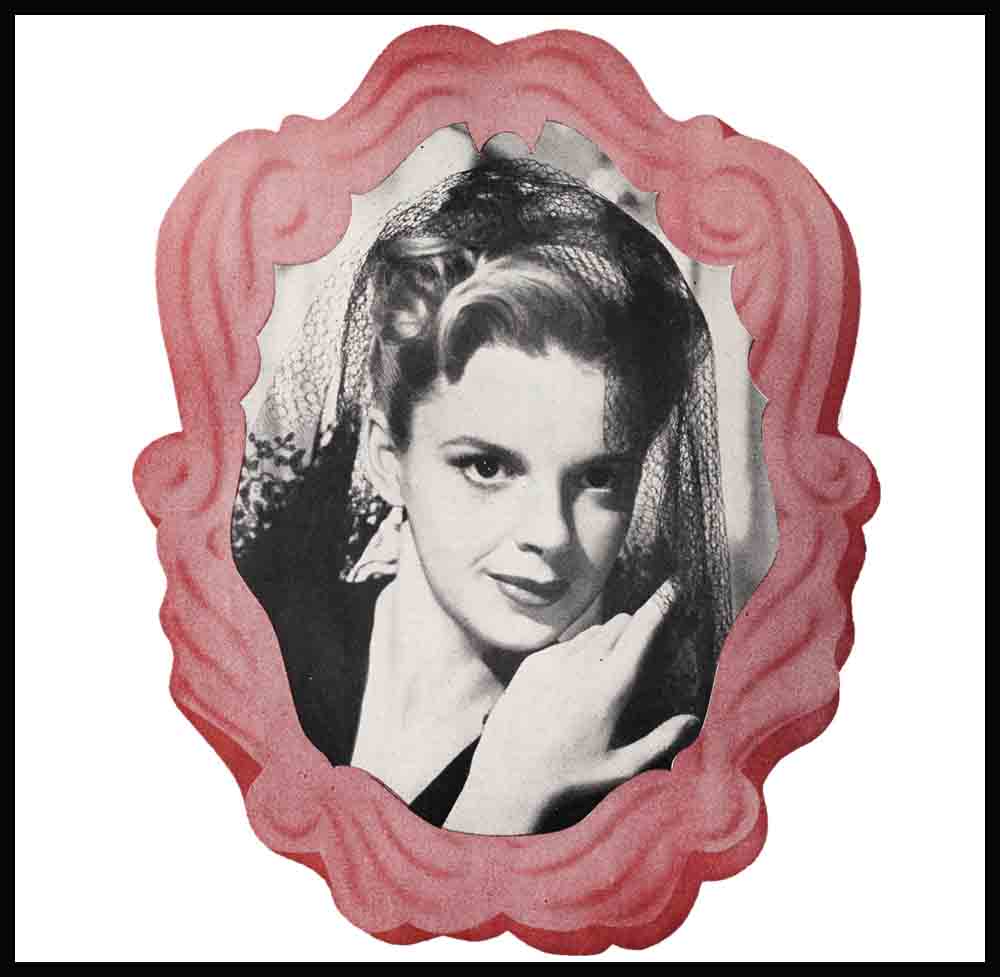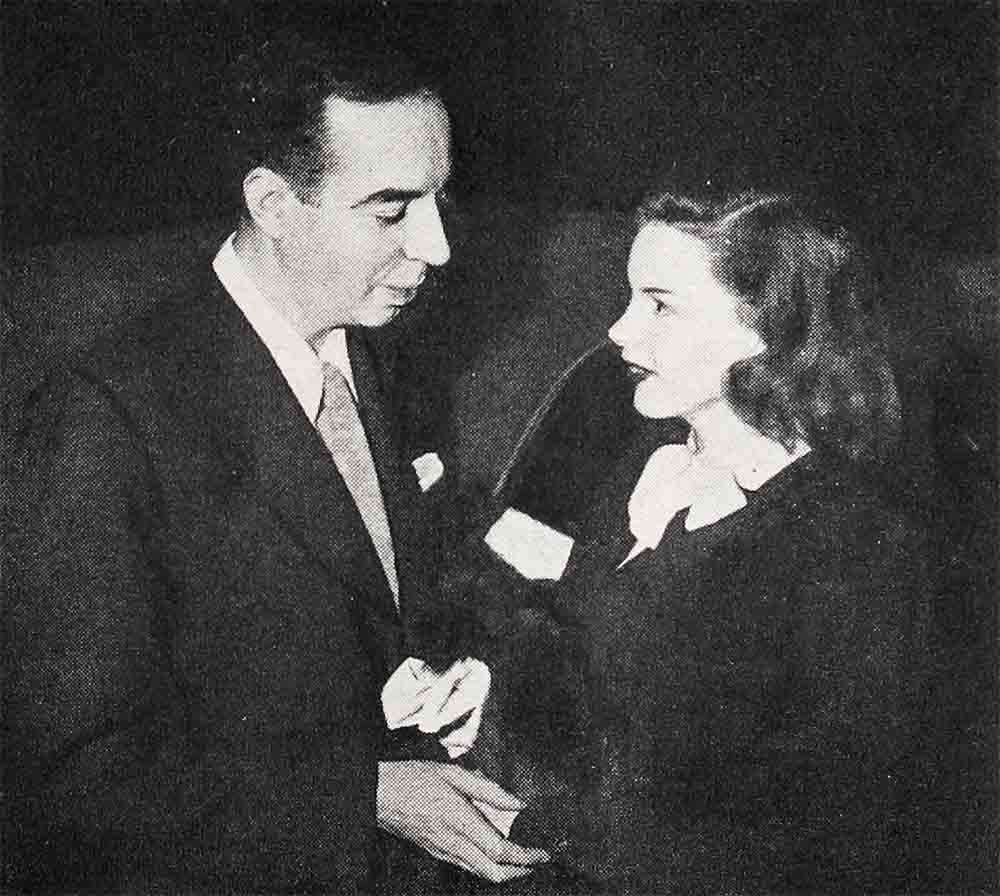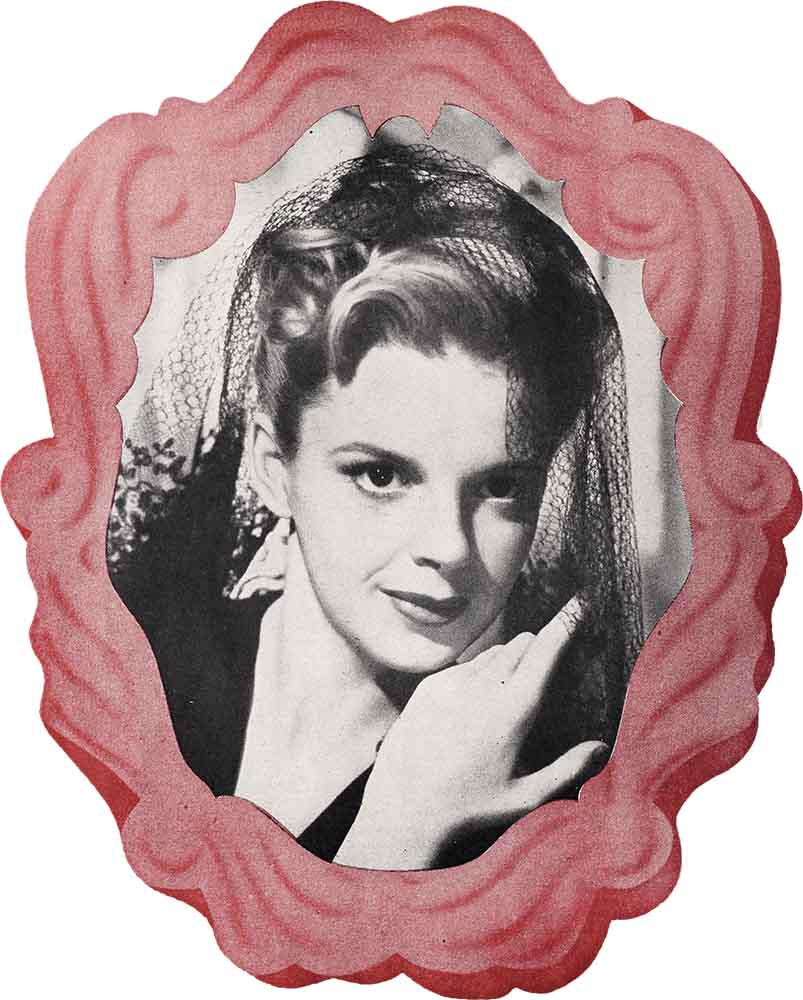
Love Song For Judy Garland
PART I
The first time I ever saw Judy Garland and Vincente Minnelli together was in the cold gray dawn on a station platform in Pasadena.
I had gone out to meet a dear friend who was coming three thousand miles, but even the glow of welcome couldn’t warm the wind that blew down from California’s snow-capped peaks. Since misery loves company, I was glad to find a lot of other people waiting for the train and to discover that they were all there because Judy Garland was coming back from a trip to New York, and that Vincente Minnelli was on the same train.
AUDIO BOOK
There had been vague rumors that a romance was brewing between Judy and the young director who had piloted her “Meet Me In St. Louis” to such a triumphant success. But nobody seemed to be very sure about it because Judy had taken her separation and divorce from Dave Rose pretty seriously.
Personally, I was hopeful about it. I had never met Mr. Minnelli, but I felt that I knew him very well. Last summer when my youngest son worked as a messenger boy at the Metro-Goldwyn-Mayer studios, I learned Vincente was the idol of the messenger boys. If a messenger couldn’t be found, he was out on the “Follies” set watching Mr. Minnelli’s picturesque methods of getting all the girls into their bubbles at the same time, or listening to his vivid and humorous vocabulary and admiring his directorial genius.
I am inclined to take the clear-eyed verdict of youth seriously myself, so I already felt a keen interest in and admiration for Mr. Minnelli.
Presently the Super Chief steamed proudly in and Judy and Vincente Minnelli got off the train and, all of a sudden, I was quite warm and happy. My friend touched me on the shoulder and I greeted her with the slightly inane remark, “But they’re in love, I’m sure they are. Isn’t that splendid?”
The reason I thought it was splendid was because, like everybody else, I adore Judy and to date her romances hadn’t been lucky. So I decided, in spite of its being just before Christmas, to go and see Judy and ask her about it. Actually it was the day before Christmas when I waited for her in her dressing rooms, a suite with a charming little drawing room and a big room which, upon this occasion, was completely filled with packages and when Judy came in she was completely loaded with packages, too.
She dumped the packages and collapsed and I thought, she’s such a very little girl, and she looks exhausted the way everybody does who has been banging around on those last-minute errands, and she isn’t exactly beautiful nor exactly pretty, she’s—she’s just Judy Garland, not like anybody else in the world and isn’t it nice to just sit and look at a girl who isn’t like anybody else? For Judy is always Judy, with the biggest, brownest eyes and where in the world does that voice come from? Lily Pons is little but then she’s a coloratura, but Judy’s voice is big p and rich and warm and dynamic.
I asked her, right away, about her rumored engagement to Minnelli.
Judy looked at me rather solemnly, and she said, “I don’t know yet myself. We— we’ve been talking about it. But this time I want to be sure; this time I want to take everything into consideration, all the things that have to do with my work and his. There isn’t any use saying—for me at least —that I’d give up my work and my singing. Vincente doesn’t want me to do that. But—we want to be very sure. When you are a movie star,” said Miss Garland very seriously, “you find that there are a lot of things to be taken into consideration that other people don’t have.” She paused a moment and then she smiled and added, “I like being a movie star. But maybe that’s because I’ve been one so long it’s become a habit.”
“How long have you been here at M-G-M?” I asked.
“Ten years,” said Judy, “but before that I was in vaudeville for ten years.”
“And how old are you?” I inquired.
“I’m twenty-two,” Judy Garland said.
Twenty-two. Ten years at M-G-M, ten years in vaudeville. Judy made her first appearance when she was two; she came to M-G-M when she was twelve.
But somehow there was a great deal more to it than that. Twenty-two is not so very old. You aren’t supposed to be adult enough to vote until you are twenty-one. A great many girls are just graduating from college at twenty-two. Yet into those short years little Judy Garland has already crowded so much of living, so much of success and applause and hard work and problems.

I thought of something Lana Turner once said: “It’s very difficult, growing up in public.”
Judy has grown up in public. And now a new air of womanliness sits upon her, without in any way disturbing the little girl she still is.
“You’ve put on a little weight,” I said. “it bothered me a little when you were so thin.”
“It bothered you,” said Judy, with a little shout of laughter. “You should know how it bothered me.”
“I thought maybe you did it on purpose.”
“I,” said Judy, gravely, “have been trying to gain ten pounds for four years. I mean literally. First, I was too fat; I was sort of chunky—remember when I was with Mickey—so everybody was trying to get me thinner. Then I got thinner and thinner and thinner—and then everybody was trying to get me fatter. Now I’ve gained ten pounds—isn’t it wonderful?”
But it set me to thinking, while Judy wrapped Christmas presents, of the crowded, incredibly hard-working life Judy Garland leads. The phone rang half a dozen times. Somebody was Consulting Miss Garland about dance routines. Wardrobe wanted Miss Garland the day after Christmas for fittings. Songs had to be tried and recorded and re-recorded. The portrait gallery wanted a sitting. The publicity department wanted to arrange some interviews. All this, of course, in addition to making the picture.
Judy handled it all with ease and great good humor.
“You know, the way I feel about Christmas,” Judy said suddenly, “I think the men overseas want to think of Christmas at home the way they always had it and loved it. Maybe it’s funny to say, but I think we’re really having Christmas for them so that if over there somewhere they’re thinking about Christmas at home, they aren’t kidding themselves. I like to think of it this year as sort of keeping in practice for them. That makes it easier. You know what I mean?”
Since one of my sons was somewhere with Patton’s Third Army, I said I knew very well what she meant.
“Do you think people are more religious this Christmas than they’ve been in a long time?” Judy said, sitting down beside me on the big couch.
“Of course,” I said, thinking how mature she was for one so young.
“You know, Judy, you didn’t just grow up in public. You grew up as the baby of the entire Metro-Goldwyn-Mayer lot.”
“Well,” said Judy, with an enchanting grin, “they were all wonderful about it, at that. The only thing that ever bothered me was how hard it was to make anybody realize I wasn’t still twelve years old. They still kind of think I am.”
That, I knew, was true. When Judy married Dave Rose the whole lot took it as a personal matter, watched the progress of the love affair, talked about it and advised Judy about it. She had met Dave Rose somewhere at a party with her sister Virginia, who is her greatest chum. She was eighteen then and still to everybody who knew her a “baby.” The thing that drew them together was music. Young Dave Rose was playing the piano when Judy walked in and that did it. From then on they were inseparable, they had musical evenings at Judy’s house with her mother and sisters, they did songs together and soon they were in love and then they married, on Judy’s nineteenth birthday.
But it turned out that music was about all they had in common. There is a simple, direct quality about Judy Garland; she has the courage to look life right in the face and when it didn’t work she met that, too. Not happily. With a good many tears and a good deal of regret that it hadn’t worked.
Part of her growing up, that marriage was.
When I saw a preview of “The Clock,” her newest picture, it came over me that Judy Garland is a big star, a very important star in the movie heavens. For a long time I’d taken her for granted, just with a sort of affection for her, always going to see her pictures and enjoying them because she was Judy. But in “Meet Me In St. Louis” and most particularly in “The Clock,” as you will see, she is more than that. There are moments in “The Clock,” a divine story written by Paul Gallico, adapted for the screen by Robert Nathan and directed by Vincente Minnelli, in which Judy Garland does some magnificent and delicate acting worthy of Helen Hayes—acting so sincere and so encompassing that I found myself putting her in a much higher bracket.

Judy has come of age as a star as well as in her private life.
And she has brought with her the things that have made her. The heart-break of an unhappy love affair might have been good for her, because every girl has to fail in love sometime with an older man who seems to represent life and glamour and the older phases of life she’s read about. The marriage that was founded on music but got out of tune. The friendships, the big family, the years of hard work and the simple philosophy of doing your job well and trying not to jostle the other fellow and expecting the best from life. All these things are in Judy’s eyes and voice and the simplicity of everything she does.
“Did you intend to become a movie star?” I asked her. “Did you have a direct ambition about it and set out to achieve it?”
Judy considered, curled up with her feet under her. “No,” she said, “it just happened. all I wanted to do, I guess, was sing. I’m sure I never thought about acting. My father and mother were both on the stage. My father was a wonderful guy. He died just after I got my first M-G-M contract—and I was always glad he saw me sort of get started. When I was little, they just kept taking me around with them and letting me sing. My mother didn’t always want to, and after we moved to California she always insisted I had to go to school. But—I had such a good time singing and it’s no fun singing unless you sing to somebody, is it? So—I don’t believe I ever thought of pictures, but little by little I sort of drifted into them because we were out here and it was a good place to sing. Then I learned to dance—my mother taught me. And that was part of it. I think it all just came about sort of naturally, you know. The way things do.” Of course. The way flowers grow, the way birds sing and fly, the way a garden comes into being.
Fat little Judy, leading the band and singing in “Pigskin Parade.” Little Judy with Mickey Rooney—and in “The Wizard Of Oz”—and finally a star in her own right in “For Me And My Gal” and now a real artist in “The Clock.”
All in twenty-two years.
We went about our Christmas preparations in our own separate ways but I kept thinking that I would like very much to know more about Vincente Minnelli. I knew a good deal about the only two men who had been in Judy Garland’s life up to this time. Both of them had served a purpose, both of them had helped her grow up. She spoke of them with a rather touching friendliness, a little wry humor, not blaming them that things hadn’t worked out, not even blaming herself.
Now, it would be different.
A week or so later the phone rang and Judy said, “I’m starting my next picture much sooner than I thought, but I wanted you to meet Vincente. We’re going to announce our engagement next week. Would you like to come and have lunch with us?”
I said I would like it almost better than anything and we set a date for two days from then.
It isn’t every movie star that I wish those who see her on the screen could know personally. Some idols have feet of silver or gold. They do not always have feet of clay. That’s why I want to take you with me to lunch with Judy Garland and the man she is going to marry.
Judy and Vincente tell this famed writer their marriage plans—at luncheon and thereafter. Join them next month— in May Photoplay.
It is a quote. PHOTOPLAY MAGAZINE APRIL 1945
AUDIO BOOK




